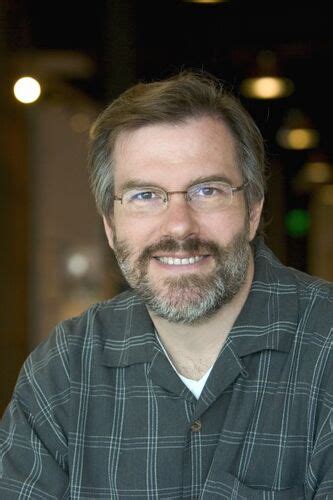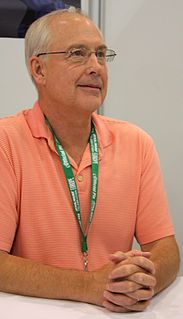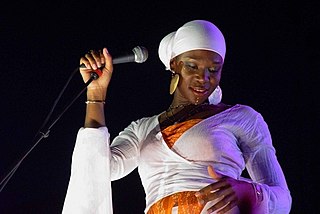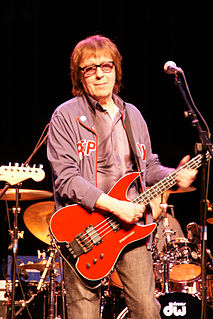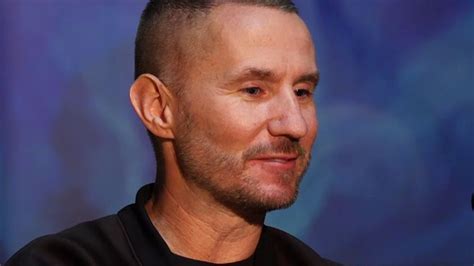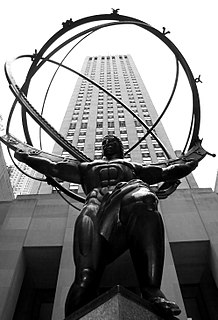A Quote by Gary Rydstrom
There's no excuse for having a mental or creative block in sound. You can just go out and collect things in the real world - they make the sound, not you. It's very restricting to always use a library for sound effects. It's much more interesting and freeing to go out and record new sounds because you never know what you're going to get.
Related Quotes
When we sit in meditation and hear a sound, we think, 'Oh, that sound's bothering me.' If we see it like this, we suffer. But if we investigate a little deeper, we see that the sound is simply sound. If we understand like this, then there's nothing more to it. We leave it be. The sound is just sound, why should you go and grab it? You see that actually it was you who went out and disturbed the sound.
I've always found that when you're trying to create illusions with sound, especially in a science fiction or fantasy movie, that pulling sounds from the world around us is a great way to cement that illusion because you can go out and record an elevator in George Lucas's house or something, and it will have that motor sound.
I'm very interested in vertical space.I want the players to listen to their sound in such a way that they hear the complete sound they make before they make another one. So that means that they hear the tail of the sound. Because of the reverberation, there's always more to the sound than just the sound.
When I do a record, it sounds more punk and raw. Or it will sound louder, or it will sound more shocking. Or mind-boggling. I'll be trying to figure it out, but once I've got it figured out I'll be like, I know this; I know where this came from. I think art is most interesting when the intention is not clear.
I do experiment with lots of different genres. In making music, I don't think of genre like, "I want to do this, because I'm going use that country music sound; I'm going use that hip-hop sound; I'm going use that acoustic [sound]." It's just making music. So now that I've traveled a lot more since I did Acoustic Soul, I'm sure that different sounds will come into place, because I have been exposed to it and I like it. But it's not so much of a conscience effort. It's mind and spirited. You know, we're humans.
I never want to go back and remix old records, either. If a record sounds shitty, that's just the sound it has. I just take it as part of the music. Some of my favorite bands - their old records sound terrible. But that's just part of the sound. If they were perfect, I'd probably hate them. Same thing with movies.
We're all about exploring new sounds, so we don't have any limits whatsoever about how we go about finding them. We do tend to sample human vocals or sample sounds, which allows you to create your own sound. That's not our only way obviously, but that's a way you can use a sound no one's used before; it's not a sound in the synth. There's a lot of that going on in our songs in general.
Think of the sound you make when you let go after holding your breath for a very, very long time. Think of the gladdest sound you know: the sound of dawn on the first day of spring break, the sound of a bottle of Coke opening, the sound of a crowd cheering in your ears because you're coming down to the last part of a race--and you're ahead. Think of the sound of water over stones in a cold stream, and the sound of wind through green trees on a late May afternoon in Central Park. Think of the sound of a bus coming into the station carrying someone you love. Then put all those together.
I collaborated with a brilliant young sound designer named Anthony Mattana, who enriched the sound of the total production with vocal effects, percussive and other sounds. He also mixed the sound effects and the music, using the theater's first rate sound system to complement the theater's acoustics. This completed my score.
The dubbing of the music and effects is really incredible today. You're feeling gun shots. I mean, it's not the way people say it is, but the gunshot sounds real. And cars sound real. Among the many things in the evolution (of movies) is to make the sound in the movie incredible. That's what you feel.
Well, things hold up even if they sound dated. It can be very difficult to listen to 80s pop songs with really, really gigantic smashed drum sounds. You just want to turn that gated reverb down on the snare. It sounds wrong now. It sounds amateurish. And ugly. But at the time it sounded state-of-the-art. So yeah, I think it's important not to sound state-of-the-art in a way that anybody else is going to sound. Or you'll quickly sound like yesterday's state-of-the-art.
